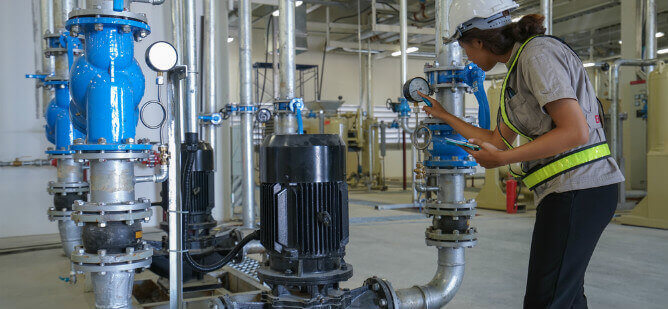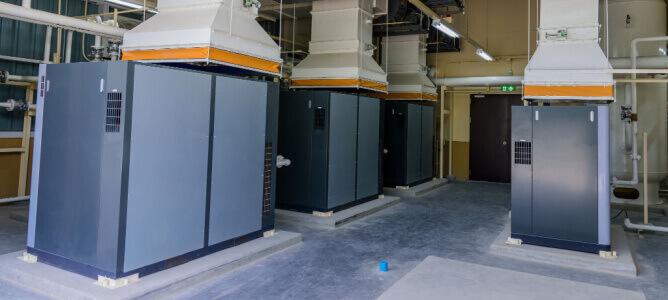
Tips to Use Your Air Compressor More Efficiently in 2023
With an estimated 70% of the manufacturing industry utilizing compressed air systems, it is evident that this equipment is one of the most commonly used energy sources across a wide range of industries. However, several factors affect air compressor efficiency, including air quality and maintenance. This article highlights several other factors that impact this efficiency and gives tips for ensuring a properly functioning air compressor system in the new year.
Air Compressor Efficiency: Why It Matters
Several industries deal with low air compressor efficiency down to 10%, indicating a need for significant improvements. Moreover, an estimated eight horsepower of electricity generates one horsepower of compressed air, making it one of the costliest forms of energy in manufacturing plants. Although up to half of the compressed air systems in industrial facilities are low-cost energy conservative, operators must acknowledge and prioritize the need for efficiency improvement practices to maximize air compressor efficiency.
Air compressor type, size, model, control mechanisms, system design, motor power rating, applications, and maintenance schedule are some common factors that impact the efficiency of the equipment. Other elements, such as friction and heat loss, also contribute to air compressor inefficiencies. Therefore operators must perform comprehensive air compressor audits to improve efficiency and minimize energy consumption and costs.
Factors That Affect Air Compressor Efficiency
Several factors, including air quality, can severely impact and air compressor’s efficiency. For example, the compressor can experience reduced efficiency due to intake air that may be humid, hot, or impure. Moreover, system design flaws, such as improperly sized distribution systems, redundant bends in pipes, zero heat recovery systems, and unaddressed leakages, can significantly minimize efficiency.
In addition, inconsistent pressure control can cause the compressor to approach and surpass its maximum pressure, straining the system and lowering its overall efficiency. Similarly, pressure drops from excess moisture, improperly sized pipes, and dirty filters can adversely affect the efficiency of air compressors. Finally, irregular maintenance patterns can lead to minimized efficiency increased air compressor repairs and costs.
Air Compressor Systems: Tips for the New Year
Some tips for efficiently handling air compressor systems to ensure continued round-the-clock efficiency in the coming year includes prioritizing heat recovery, ensuring constant system condition monitoring, utilizing high-performance filtration systems, and adhering to a regular maintenance pattern.
1. Heat Recovery
Heat recovery includes channeling the waste heat from one industrial process for utilization in another. An estimated 96% of the electrical energy in air compression processes leaves as compressed heat. The recovery process minimizes the loss of this compressed heat to the atmosphere through radiation and cooling systems. Moreover, heat recovery involving hot water generation is ideal for space heating and sanitary applications. Other applications, such as pre-feed heating, can leverage heat recovery to minimize the total energy costs.
2. Condition Monitoring
Constant remote monitoring of air compressor systems is necessary for high equipment performance regardless of prevalent conditions. Monitoring air compressors is particularly essential when plant personnel is not physically present in the facility during non-peak production periods. With these remote systems, personnel can adequately monitor the conditions of the air compressor regardless of their location and rapidly address any fault that develops.
3. Filtration
Filtration is vital to compressed air production in facilities since it can significantly minimize air quality and optimize efficiency. Upgrading this component can improve the overall performance of air compression systems. Moreover, prioritizing air compressor filtration systems with in-built bypass capabilities can minimize downtime during its maintenance.
4. Regular Maintenance
Operators must adhere to a regular maintenance pattern for the proper air compressor system functioning and maximized efficiency all year round. During maintenance, engineers must acknowledge the prevalent temperature condition and changes and adhere to standard maintenance practices. Regular maintenance allows operators to identify leakages, corrosion, and other air compressor issues and address them immediately.
Discover NiGen’s Efficient Air Compressors
NiGen is committed to designing, producing, and installing top-of-the-line nitrogen generation systems that adhere to customer and industry standards. We help our clients choose and set up the best air compression system for their industrial needs. In addition, we provide expertise in air compressor testing and maintenance services.
Contact us to get more information on our comprehensive portfolio of air compressors.

